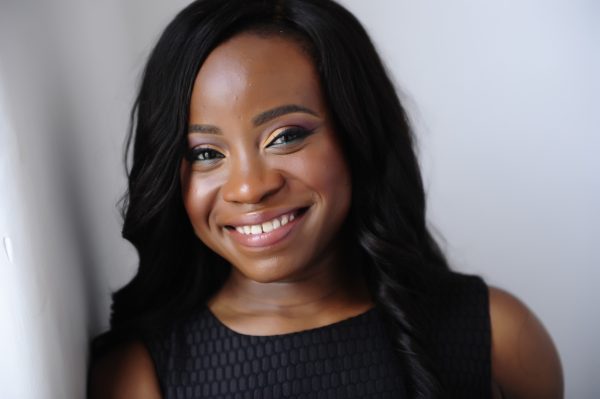At 27, Ozak Esu already has more awards to her name than most other engineers on the planet would ever amass in a lifetime. She’s undoubtedly brilliant: an academic high achiever who’s almost practically slid nicely into the world of professional engineering, taking on multiple projects and getting international recognition for her work.
The fact that she’s a young woman with a PhD excelling in a field heavily dominated by men is eye-catching. It’s also impressive that she’s an African female electrical engineer in the United Kingdom. Not surprisingly, she has become a role model for many girls and members of ethnic minorities in that country who are dreaming of a career in science or engineering.
Esu isn’t oblivious of this. She’s practically thrown herself at encouraging girls and young women to dare the male dominated status quo in STEM disciplines, and get comfortable with wires and calculus, as she’s done.
Inspired by power outages
Esu’s passionate involvement with electrical engineering was ironically sparked by her experience of erratic electricity supply in her country of birth. She was born in Kaduna, and grew up with the frequent power cuts that have become a part of daily life in Nigeria. But even at an early age, she wondered why no one seemed to be doing anything about the lights constantly going off.
“We used to get power cuts and it was frustrating. One day, I asked my dad whose job it was to fix the power. He said it’s what an electrical engineer does. So I decided that I was going to become an electrical engineer.”
— Esu
In 2008, she moved to the United Kingdom to study electronic and electrical engineering at Loughborough University. Three years later, she graduated with first class honours and was awarded a £54,000 scholarship to pursue her PhD at the same institution. In 2016, aged 25, she earned her doctorate.
An engineer on a mission
While she was working on her PhD, Esu joined Cundall Johnson and Partners, a UK based international engineering consultancy. Beginning as a Graduate Engineer, she helped design and aid the construction of numerous schools, as well as office spaces and churches. Her graduate research on wind turbines has also been published in several academic journals, and she’s presented at renewable energy conferences across Europe and the United States.
Esu’s work has been recognized by the media and professional bodies in the UK. In 2017, she was that country’s Institution of Engineering and Technology’s Young Woman Engineer of the Year; she was also on UK newspaper The Telegraph’s Top 50 Women in Engineering Under 35.
Beyond the confines of her office space, Esu is involved with efforts to promote STEM education among school children. She’s taught maths as a volunteer for the charity Access Project, and has tutored students for the GCSE in England. She’s also been on the panel of the Association for Black and Minority Ethnic Engineers (AFBE-UK), working to present STEM disciplines as viable options for so-called minority groups in the United Kingdom.
Back in Nigeria, Esu is a mentor at the Visiola Foundation, an NGO which supports African girls and young women in their quest to earn degrees in science, technology, engineering and mathematics.
“As males or females in engineering, I think it’s very important that we dedicate time to go into schools and actually volunteer,” Esu opines. “It’s important that people (engineers) make time to actually go into schools and speak to kids or even invite them to your workplaces for work experience opportunities because you don’t know who you’d be inspiring to follow in your footsteps.”
— Esu
Electrifying a shared future
Despite mentoring and the other activities Esu is involved in, she has her original aim in sight.
“It sounds cheesy, but my dream is to improve electricity in my country. If people have electricity, they’d be empowered to start their own businesses which will bring in revenue for the country to be able to develop in other areas.”
— Esu
She also has a word for young wannabe scientists:
“Find a mentor to guide you through your career, and be a mentor to guide the younger ones into a career in engineering. In giving back, you develop skills and expand your network, which influences your career in many positive ways.”
— Esu


